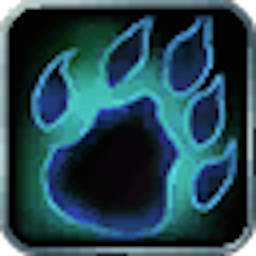Hiya, so am looking to buy more storage and while browsing am seeing some external harddisks, such as Western Digital My Book and Seagate Expansion Desktop for cheaper than the internal harddisks themselves. Have seen this one video from KTZ Systems where he bought up multiple of these external ones just to open them up and use the disks for his own server. Was therefore wondering if you peeps have ever done this and if there any downsides to it at all?
Yup. And if you want to look up more info on how to do it correctly, look up hard drive shucking.
Thanks!
It’s called shucking and it happens a lot especially in the home server home lab community.
learn something new every day :)
It’s a bummer that hard drives are priced this way. It’s been common for a few decades now.
The best ones for this are the ones from Best Buy. Easystore.
Don’t you think it’s wild that a hard drive, which is just chilling inside its case, suddenly has its innards spilled out using a screwdriver, and dumped into a 24/7 NAS with other hard disks.
A bit inhumane if you ask me.
It’s totally inhumane but also no living thing was harmed, so - all good.
Just that those ext disk aren’t built for 24/7 usage. They will die faster and generate bigger costs over time 😉
My oldest ones have been running 24/7 since 2018 and tons of people have been doing the same. Where’s your data to suggest that these drives fail faster than any other?
If you look around and are informed then you can easily purchase drives that are designed for Nas use. I shucked three eight terabyte Western digital external hard drives and they were all WD reds, but because of the deal they were running they were $60 a piece cheaper inside of the shell than they were outside of the shell.
Yes I’ve done it. What sucks is you make a lot of trash this way. Also double and triple check that the drives you buy will have standard sata connectors on them.
I like the trash to hook up any hard drive via USB.
Yeah one of these is literally my primary USB 3.0 to SATA adapter
But you don’t need 8 of them, do you?
You never know.
Stop staring at my cable box. I don’t have a problem!
Be aware. Some external USB drives, like WD Elements, have built-in USB controllers. So they don’t have a SATA connector.
This must’ve changed as I’ve shucked WD Elements / Book drives and they were normal drives…
So, you’re saying the actual harddrive has a USB chipset onboard and only a USB interface?
When did this start happening?
I’ve shucked probably 100s of those WD essentials and they just had a little SATA -> USB adapter on it. It’s been a few years but it doesn’t seem like they’d make a whole new PCB just to include USB.
Within the past 2-3 years drive manufacturers have been swapping to USB PCBs directly attached to the drive controller, instead of using a SATA -> USB interface.
Ok, so does that also mean we can check the SMART parameters now?
Previously, the USB interface effectively blocked access to them.
the 2.5" size of disks are now mostly direct USB controller disks rather than sata adapters internally.
3.5" disks are still SATA as far as i’ve seen but the actual sku’s of the disks are often the lower grades. like you will get a disk that looks like another good disk but with only 64mb of dram instead of 256 on the one you would buy as a bare internal drive for example so they can end up a bit slower. and warranties are usually void.
I think this depends on whether it’s a 3.5 or 2.5 inch drive inside. To my knowledge, all external drives with a 3.5 inch drive inside are shuckable and have a standard SATA interface. With the compact drives that have a 2.5 inch drive inside, many will have a native usb interface and no SATA connector.
It makes sense as 3.5" sata drives are used for many many applications so why make something new just for external drives? With 2.5, however there are very few devices that use spinning sata drives in this form factor. It makes a lot more sense to build the USB interface directly on the drive since their main and possibly only application is external drives.
I could be wrong, but this has been my experience.
Good to know! thanks
Yes and i got “scammed” - western digital in order to save $3 included the USB port directly on the drive motherboard instead of the usual sata+usb like anyone else was doing
Same happened to me on a WD black
Amazing, I didn’t know they did this
Which external drive did you buy? This must be a fairly recent change.
Just why don’t they omit the casing inside the case too?
Yes. Be aware there will be some pin blocking you need to do to make it work right because vendors know this trick.
I have done this with dozens of drives and have never had to do any pin blocking. You only need to do that if you’re using an absolutely ancient sata power cable that doesn’t know about the spinup pin change
I had to do it with brand new psu and cables. Seasonic . So no
This has been the case since SATA revision 3.3, released Feb 2016. So while I may have exaggerated with “ancient”, a brand new PSU certainly shouldn’t still be feeding 3.3v to that pin.
Well. They do
Same here. A brand new modular Seasonic Platinum PSU (back in 2018 when I built the PC) also needed the 3v3 pin covered. I just use Kapton tape over the pin to avoid any destructive methods or having to use sketchy molex connectors.
Yeah typical :P
IMO, if you want the beast deals right now on a 12+ TB HDD, you should use serverpartdeals.com instead. I’ve got 2 manufacturer recertified 14 TB enterprise-grade drives from them and it was way cheaper than buying any 14 TB external drive.
Im based in scandinavia so wont be able to buy from there, but thanks anyway!
Hey. Heyhey. Heyheyhey. Have you ever noticed that your warships have giant barcodes on them? It’s so that when they return to port they can scan the navy in.
Yes. It’s a viable way to save money if you use a site like https://shucks.top/
I have opened other enclosures and found a custom board on the hard disk.
Why create yourself a headache and still get substandard and no-warranty drive. If you want cheaper drives go for reconditioned/refurbished/used drives. Same risks, better product. Old enterprise SAS drives are cheap and many still have plenty of heath in them.
Do keep in mind that you need a SAS controller for that, which can cost between $50-200
And maybe some juicy data to recover 😏 honestly, which enterprise sells its old drives? That is calling for a data leak, isn’t it?
The ones that aren’t forced to care by regulators. So basically anyone that isn’t finance or defense.
😳
Many sells, some just wipe them, some just contains encrypted data. If you happy with just used drive eBay is full of surprises.
Do you have places where you can buy those old business drives? Are there websites for this market?
Yeah! The practice is called drive shucking (kinda like Oysters) and you just need to be considerate of the limitations. The drives often end up cheaper, but lose warranty support once they’re shucked. They’ll also occasionally be slower than a normal drive or have an odd connector, but that is rare since it’s usually cheaper to go with something ‘off the shelf’. If you Google it though you should usually be able to find the handful of drive SKUs they’ll use in whatever external you’re planning to shuck.
oysters?
Edit: OP originally wrote “Osters.” No need to downvote.
Indubitably.
Ozone!
i bought a big external hdd recently on impulse… a clearance sale. it was really, really cheap. with the thinking that i could ‘shuck’ it because i’m short on space in a couple storage systems. i checked. i can, but i haven’t. hell, i haven’t even used it yet other than to run a full smart diag on it, followed by a full format and a read/write verify. took days. then i put it back in the box and have basically forgotten about it until now.
you have to be careful on what models you buy. some have usb built onto the controller board (no internal sata) or other things (e.g. encryption chip, weird power) that make it more difficult or even impossible to use the internal drive in an environment other than the enclosure it ships in.
I thought you were talking about the platter
Shucked drives are usually the drives that are rejected for internal use because of quality issues. They might work fine, they might not. Be careful with them and remember, RAID is not a backup.
maybe if you buy them from aliexpress, but WD/Seagate USB drives have better warranty than internal drives and at the same time they need to withstand more abuse from users (of course that warranty is void the moment you shuck them)
for some people is normal to keep an hdd in the backpack and carry it around all the time (for me is unconceivable)
many times, shucking is a very valid way to get large format disks for cheaper than retail NAS parts. But be aware of what your buying and make sure that the disk your getting if its a white label is a reliable disk. WD Easystore/Mybook are generally good, as are the larger format Seagate external.



















